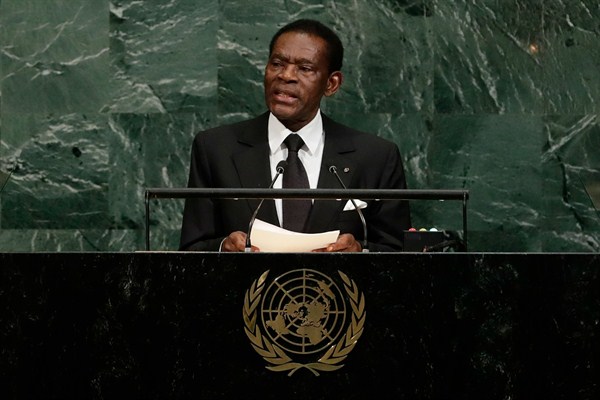On Monday, Equatorial Guinea opened a five-day National Dialogue that was first announced in June by longtime President Teodoro Obiang Nguema Mbasogo. Earlier this month, Obiang also promised a total amnesty for jailed political prisoners and opposition figures who have been banned from politics, although one recently banned party, Citizens for Innovation, declared that he did not follow through. In an email interview, Mark Blaisse, a freelance journalist and expert on Equatorial Guinea, discusses Obiang’s motives in declaring the amnesty and calling for the dialogue, and the prospects for it leading to meaningful change.
World Politics Review: The current National Dialogue was preceded by a declaration of amnesty for political prisoners. What is behind these moves? Did the government follow through?
Mark Blaisse: Last December, President Teodoro Obiang Nguema Mbasogo had to deal with yet another coup attempt, so his recent overtures likely stem from a desire for national solidarity in the wake of that event. A roundtable would provide the opportunity to explain that “foreign” activists are trying to destabilize Equatorial Guinea, as happened in 2004, when British business interests were involved in trying to replace Obiang. In addition, Obiang, the longest-serving African leader, may feel tired and old, and wishes to prepare the ground for his oldest son, Teodorin, to succeed him. That said, many doubt that his intentions are genuine, and call the invitation to the dialogue “arbitrary.”

